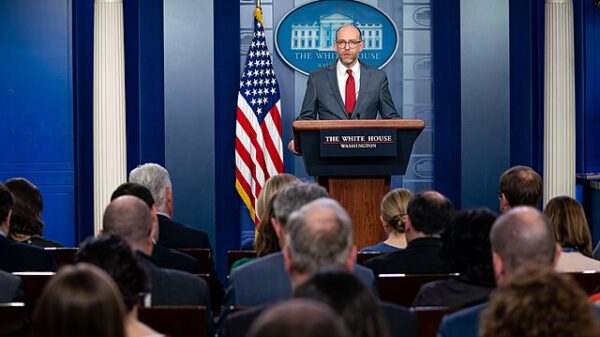Staff Writer Anna Orwin Algeo examines the implications of Donald Trump’s 2024 election victory on women’s rights, questioning the erosion of American values and the nation’s potential to reclaim its commitment to equality and progress.
“Can you say why America is the greatest country in the world?”
The question, asked by an eager female college student in HBO’s “The Newsroom”, now rings with bitter irony.
Since “The Newsroom” first aired just over a decade ago, the very foundations that supposedly made America great have been systemically eroded. The country that once upheld itself as a place of diversity, freedom, and opportunity once again finds itself at the mercy of a misogynistic leader, and consequentially, regressive reproductive policies.
The recent presidential election has made one thing clear. In contemporary America, very few could now muster the audacity to ask for proof that America is the greatest country in the world. For in a truly “great” nation, surely half of the population wouldn’t be witnessing the removal of their fundamental human rights?
Today, approximately 64 million American women of childbearing age have been stripped of their constitutional right to bodily autonomy. The overturning of Roe v. Wade wasn’t just a legal decision, it demonstrated that the America of 2024 is a nation at odds with its own professed values. The “land of the free” now imposes draconian restrictions on women’s bodies. This is not the trajectory of a country moving forward; it’s the path of a nation in decline, with many women now having fewer rights than their mothers or grandmothers.
The argument, pushed by Trump, that reproductive rights should be decided at a state level is not just misguided, it’s dangerous. The right to bodily autonomy and healthcare should be a universal principle which is not at the mercy of geographical boundaries. The very idea that human rights could be optional, or a matter up for bipartisan debate, is a chilling indictment of America’s current political climate.
For young women, the realisation that their fundamental rights have become a political bargaining chip, and that chauvinistic legislation is now a winning policy point rather than a career-ending stance, is nothing short of heartbreaking.
What’s more, the result of the 2024 election sends a clear message: the majority of the American population are perfectly willing to elect an alleged sexual assaulter as their president.
Trump’s misogynistic rhetoric, or “locker room talk” as he prefers it to be known, has been widely publicised but apparently to no avail. Not only has Trump been recorded objectifying and degrading women, but the president-elect has no less than 26 accusations of sexual misconduct.
Whilst it is important not to ascribe every vote for Trump as an endorsement of these behaviours, when a candidate so patently treats women as second-class citizens, both on a personal and policy level, it’s hard to not equate a vote for Trump as a vote against women’s rights.
The implicit endorsement of such behaviour perpetuates a culture where abusers face minimal consequences while victims are systematically silenced. The Trump campaign’s handling of sexual assault allegations in 2016 exemplified how powerful institutions increasingly silence victims while protecting abusers. This was particularly evident when the viral hashtag #WhyWomenDontReport emerged after confidential information about one of Trump’s alleged victims was leaked to the public.
With this precedent, it’s no wonder that women who have been sexually assaulted, by anyone, from a politican to their own boss, struggle to come forward. Despite claims that sexual assault accusations devastate men’s careers, evidence seems to suggest otherwise. The true burden falls not on the accused, namely privileged men, but on survivors, whose credibility continues to be undermined by a system that works to protect perpetrators.
America’s current trajectory is certainly challenging the assumption of American exceptionalism. Put plainly, America is not the greatest country in the world anymore. Yet, it does have the greatest potential of any nation.
America Can Reclaim It’s Credibility
Founded on the ideals of equality, liberty, and individual rights, America’s capacity to lead the way in pioneering positive change remains one of its biggest strengths. The widespread domestic dismay directed towards another Trump presidency highlights that America’s deep-rooted commitment to freedom and its ongoing struggle for a more equitable future is far from over.
The question of “why is America the greatest country in the world” demonstrates not only an enduring patriotic spirit, but also a collective willingness to confront and address national challenges.
The journey back to greatness, to truly “make America great again”, will not be simple, but it’s one that must be undertaken. America’s future influence will depend not on slogans or claims of supremacy, but rather on its ability to demonstrate genuine progress in addressing gendered inequalities. Only then can America be the greatest country in the world again.


















